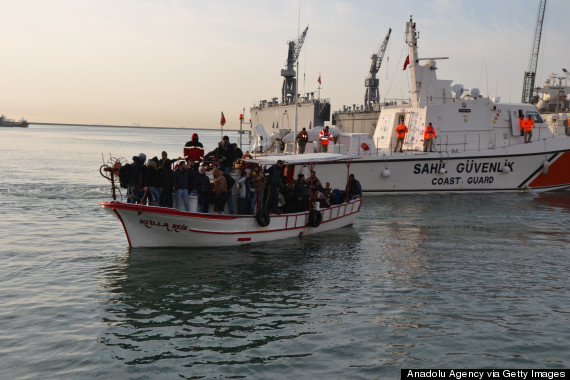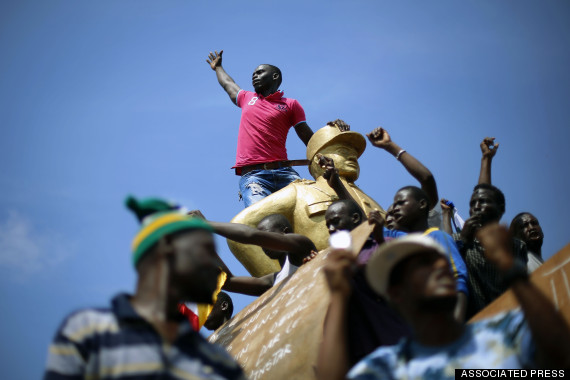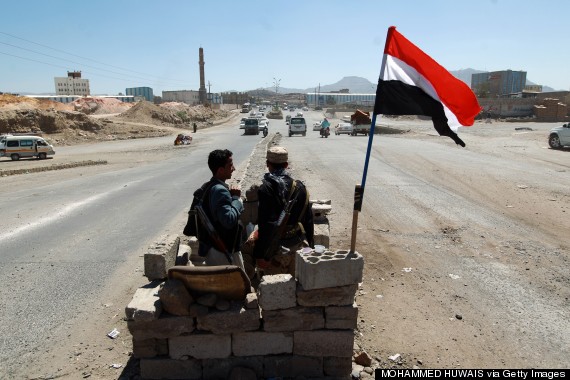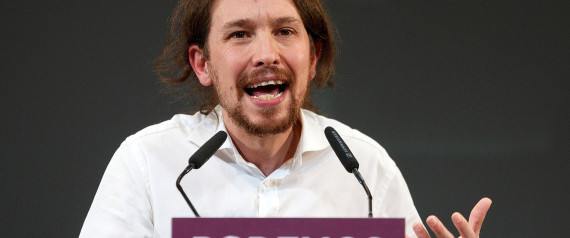From the war in Gaza to the crisis in Ukraine, the rise of the Islamic State in the Middle East and the disappearance of 43 students in Mexico, 2014 was a year of major political and economic developments across the globe.
But the barrage of breaking news can make it hard to see the forest through the trees. Take a look at these four crucial international developments in 2014 that may have slipped under your radar.
On Sept. 10, human traffickers sank a smuggling boat off the coast of Malta in the Mediterranean. Aboard were 500 Syrians, Egyptians and Sudanese who had scraped together massive sums to try to make it into Europe.
A few days later, more than 200 African emigrants were reported to have drowned when their boat sank off the Libyan coast. "It was without any doubt the deadliest weekend ever in the Mediterranean," Carlotta Sami of the United Nations’ Refugee Agency said at the time.
UNHCR warned earlier this month that 2014 saw a record number of people risking their lives at sea in search of asylum or migration. According to the organization, at least 348,000 people have undertaken such treacherous journeys since January, an estimated 207,000 of them across the Mediterranean. UNHCR said that’s almost three times the previous record set in 2011 at the height of the Libyan civil war, when about 70,000 made the trip hoping to reach Europe. Asylum-seekers fleeing the deadly conflict in Syria made up the biggest group of refugees this year.
In its December announcement, UNHCR said many aboard the ships were killed or fell victim to international organized crime. An estimated 3,400 migrants and asylum-seekers have lost their lives in the Mediterranean this year. And aid organizations have warned that the toll may rise. Italy had funded a large-scale search-and-rescue operation after a deadly accident on the coast of Lampedusa in 2013, but suspended the mission last month. The EU operation that is expected to fill part of the gap has a smaller budget than the Italian operation, and will focus on border protection instead of search and rescue.
"You can't stop a person who is fleeing for their life by deterrence, without escalating the dangers even more," UNHCR High Commissioner Antonio Guterres said. He stressed that instead, the root causes of the crisis need to be addressed. “This means looking at why people are fleeing, what prevents them from seeking asylum by safer means, and what can be done to crack down on the criminal networks who prosper from this, while at the same time protecting their victims.”
 Illegal immigrants are escorted by the officers of Turkey's Coast Guard Medit
Illegal immigrants are escorted by the officers of Turkey's Coast Guard Medit
(Turkish Coast Guard Command/Anadolu Agency/Getty Images)
Humanitarian organizations and the United Nations raised the alarm about security in the Central African Republic this spring, warning that deteriorated relations between the ethnic communities in the country had put the nation at risk of genocide.
The crisis had started a full year before, when the Muslim Seleka rebel group took over the capital Bangui, and its leader Michel Djotodia claimed the presidency. Christian anti-Balaka self-defense groups formed in opposition to the Muslim fighters. Djotodia fled to Benin in January, and the well-respected mayor of Bangui took over. Yet the change of leadership proved insufficient to restore security.
While the arrival of international troops has stabilized the situation slightly, daily violent clashes have continued. Reuters estimates more than 3,000 people have been killed in the country since December 2013. According to The Associated Press, as many as 5,000 people have lost their lives between December 2013 and September 2014.
UNHCR estimates that one-fourth of the country’s population has been internally displaced since December 2013. At the peak of the violence, more than 930,000 people had left their homes. While that number declined to 508,000 by August, more than half of the country’s 4.5 million residents remain dependent on emergency assistance.
 Members of the Muslim community demonstrate calling for the disarmament of Anti Balaka factions and for peace in the PK5 district of Bangui, Central African Republic, Saturday May 31, 2014. (AP Photo/Jerome Delay)
Members of the Muslim community demonstrate calling for the disarmament of Anti Balaka factions and for peace in the PK5 district of Bangui, Central African Republic, Saturday May 31, 2014. (AP Photo/Jerome Delay)
Houthi fighters swept through the Yemeni capital Sanaa in September and wrested control from most major government buildings in just a few days. Weeks later, the armed Shiite group of the Zaidi sect and Yemen’s other political factions agreed to a U.N.-brokered deal for a new government and end to the deadly fighting.
The takeover of Sanaa and the deal that followed radically changed Yemen’s political landscape. Reuters writes the Houthis have tightened their grip on state institutions, including the main ports, the defense ministry and a state oil company, There are reports of Houthis running illegal detention facilities and operating their own court system.
Yet the deal has failed to bring back stability. Reuters notes that while the Houthis initially received public approval for their stance against corruption and their relatively liberal proposals, many now disapprove of their fierce tactics. In addition, al Qaeda in Yemen, the Sunni terrorist organization that considers the Shiite Houthis heretics, has launched a bloody campaign against the rebels, which includes raids and suicide bombings. Reuters aptly summarizes that the fall of the capital has widened Yemen's tribal, regional and political divisions and has raised concerns whether Yemen as a state may unravel.“The inability of state forces to check the Houthis' ascent or dampen sectarianism has galvanized separatist groups who spot an opportunity to push their own agendas.”
 Yemeni gunmen loyal to the Shiite Houthi movement man a checkpoint in Sanaa on Oct. 30, 2014. (MOHAMMED HUWAIS/AFP/Getty Images)
Yemeni gunmen loyal to the Shiite Houthi movement man a checkpoint in Sanaa on Oct. 30, 2014. (MOHAMMED HUWAIS/AFP/Getty Images)
A new political party has taken Spain by storm this year, finishing second in recent exit polls, less than one year after its formation.
Polls published in early December indicated that Podemos -- which means “we can” in Spanish -- would bring in 25 percent of the vote if elections were held at the time of publication.
The results indicated a slight loss for Podemos from a historic result in November, when polls put Podemos ahead of both the People's party, currently in power, and the socialists leading the opposition. The Guardian notes that those two parties together carried 75 percent of votes in the past.
Podemos was formed in January, in the wake of the 2011 indignados movement. It is led by Pablo Iglesias, a university lecturer in his 30s with a signature black pony tail.
The party stands for an end to traditional politics and corruption. Its signature proposals include higher minimum wages, a 35-hour workweek, a guaranteed minimum income, and lowering the retirement age -- plans that radically differ from the policies of many European nations.
El Pais explains that most criticism of the new party focused on its economic program, with critics saying it was too vague and too radical. The newspaper notes that the party has since altered some of its proposals, including a Spanish default on the country's debts.
 New Podemos Party leader Pablo Iglesias speaks during a meeting to announce the elected Podemos Party members at Nuevo Apolo Theatre on November 15, 2014 in Madrid, Spain. (Pablo Blazquez Dominguez/Getty Images)
New Podemos Party leader Pablo Iglesias speaks during a meeting to announce the elected Podemos Party members at Nuevo Apolo Theatre on November 15, 2014 in Madrid, Spain. (Pablo Blazquez Dominguez/Getty Images)
CORRECTION: An earlier version of this story mistakenly identified the Houthis as a Yazidi sect. This post has been corrected to reflect that the Houthis belong to the Zaidi sect of Shia Islam.
